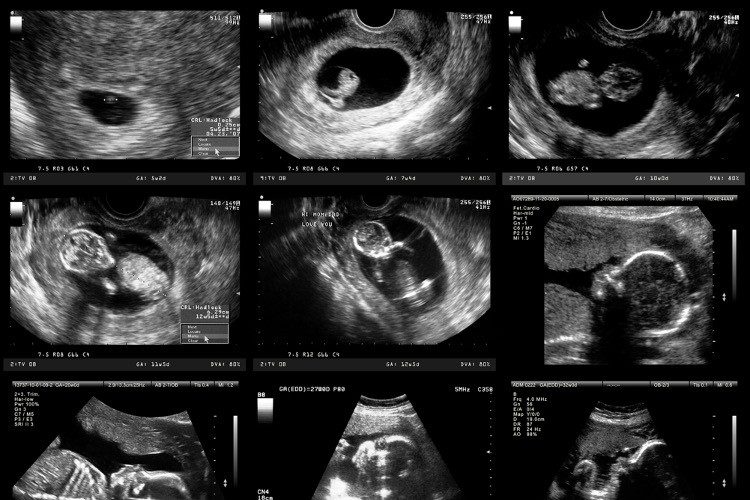
A Republican lawmaker in Florida has introduced a pro-life bill that closely mirrors that of the Texas law prohibiting abortion after a heartbeat is detected which took effect earlier this month after the U.S. Supreme Court did not respond to an emergency appeal by abortion providers.
CNN reports that Florida House Bill 167, filed by Florida State Representative Webster Barnaby, prohibits abortions after a fetal heartbeat is detected, typically around six weeks into the pregnancy, with exceptions for rape, incest, domestic violence, human trafficking, or a life-threatening condition. It allows private citizens to bring lawsuits against physicians who provide abortions after six weeks. Under the measure, lawsuits can be brought against any person who “knowingly engages in conduct that aids or abets the performance or inducement of an abortion.” The Florida bill allows lawsuits up to six years after the law has been violated, differing slight from the Texas law, which creates a four-year window. Notably, the bill also removes the word “fetus” from the language and replaces it with “unborn child.”
The act states, “a fetal heartbeat is a key medical predictor that an unborn child will reach live birth, and cardiac activity begins at a biologically identifiable moment in time, normally when the fetal heart is formed in the gestational sac…. The State of Florida has a compelling interest from the outset of a woman’s pregnancy in protecting the health of the woman and the life of the unborn child, and in order to make an informed choice about whether to continue her pregnancy, the pregnant woman has a compelling interest in knowing the likelihood of her unborn child surviving to full-term birth based upon the presence of cardiac activity.”
HB 167 has been filed for consideration during the legislative session starting in January, News 4 Jax reported.
Florida House Speaker Chris Sprowls welcomed the bill, noting pro-life legislation must be able to withstand legal challenges.
“I have always fought for unborn babies and their right to life, and the Florida House of Representatives has been a national leader in developing pro-life legislation,” Sprowls said through a spokesperson. “Our laws have to be strong enough to jump through multiple levels of judicial scrutiny. We look forward to bringing to the Floor a bill that saves every unborn life possible.”
Pro-life lawmakers became emboldened after Texas’ heartbeat law secured a big win in the U.S. Supreme Court earlier this month when the court decided not to act on an emergency petition from Texas abortion clinics.
Politico contends the court’s choice not to act on the petition is likely related to the court’s decision to review Mississippi’s ban on abortion after 15 weeks of pregnancy in a direct challenge of Roe v. Wade. Experts believe that case may be the opportunity for the high court to reconsider the right to abortion established by that landmark, controversial 1973 decision. Arguments are expected later this year, with a ruling expected in 2022, Politico reported.
With Texas’ law permitted to take effect, Florida Governor Ron DeSantis had said that what Texas did was “interesting” and that he would “look a little more significantly at it.”
The Texas law, titled the “Heartbeat Act,” is about to be properly tested as two lawsuits have recently been filed against a Texas doctor who admitted to breaking the state’s new abortion law. In an opinion piece for the Washington Post, Dr. Alan Braid said he carried out an abortion for a woman who was in the early stages of her pregnancy but “beyond the state’s limit.”
“I fully understood that there could be legal consequences — but I wanted to make sure that Texas didn’t get away with its bid to prevent this blatantly unconstitutional law from being tested,” he wrote.
BBC reported that a former lawyer from Arkansas, Oscar Stilley, filed a lawsuit after reading Dr. Braid’s opinion piece, asserting he is not particularly opposed to abortion but is more interested in testing the legality of the law. A second lawsuit was filed by Felipe Gomez of Illinois, who is pro-choice and said he seeks to prove the law is “illegal as written and as applied.”
If the lawsuits are successful, however, they could prove to give the new law the teeth it needs, and will certainly invite other pro-life states to follow in Texas’ footsteps.
CNN reports lawmakers from across 10 states — Arizona, Arkansas, Georgia, Indiana, Mississippi, Missouri, North Dakota, South Carolina, South Dakota, and West Virginia — have already indicated they planned to introduce measures similar to Texas’ law.
According to Texas Right to Life, Texas is the first state in the nation to “successfully enforce a ban on abortions when the preborn child’s heartbeat is detectable.” Though a number of other states have passed “heartbeat bills,” most have been invalidated by courts, the Christian Post reported. These include bills in Georgia, Missouri, Mississippi, South Carolina (which has since filed an appeal), and Iowa.
Predictably, the response from the pro-abortion community has been angry. NARAL Pro-Choice America says it is “horrified to see anti-choice politicians in Florida following in Texas’ footsteps.”
“There’s no question that lawmakers hostile to reproductive freedom in other states will do the same,” Adrienne Kimmell, the group’s acting president, said in a statement. “The harm of these draconian attacks cannot be overstated and they most acutely impact those who already face the greatest barriers to accessing care.”




